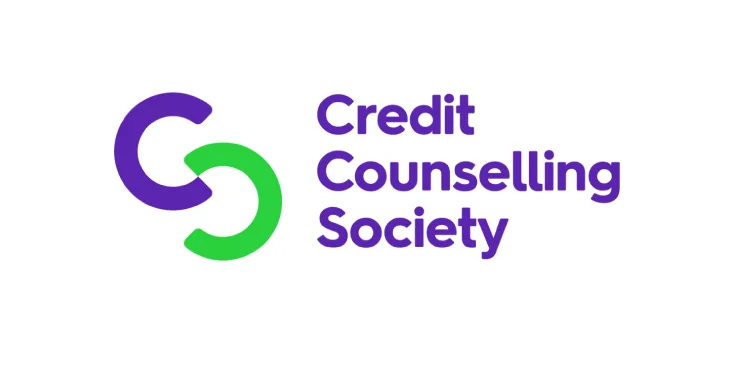
A creditor needs a court order before they can take a debtor's property.
Having multiple debts can feel overwhelming. Where to begin? Should you pay off your credit card first? What about your car loan? Some debts are important to deal with before others. Just because an aggressive creditor is pressuring you to pay him first, that doesn’t mean you always should. Learn the first steps to take in dealing with debts.
What you should know
“Six months ago, I fell behind on my mortgage payments. I also fell behind in making payments on my personal loan. I couldn’t afford to pay the arrears on both. I didn’t want to lose my home, so I prioritized paying my mortgage arrears. I’m back to making regular mortgage payments, and now I’m working on paying down the arrears on the loan.”
– Diana, Saanich, BC

Some kinds of debts have serious consequences if you fail to make your payments on time. Car loans are an example. If you miss payments, you can lose the car.
Other debts have more forgiving terms. For example, a missed payment on a credit card debt results in extra interest charges, and your credit score will take a hit. You don’t want to ignore such a debt, but a lapse here isn’t as serious as having your property seized or your electricity cut off.
The law gives creditors different ways of getting their money back if a debtor can’t pay. Some ways can create serious problems for a debtor. For example, some unpaid creditors may be able to:
take possession of a debtor’s home
send someone to seize a debtor’s personal property
cut off a debtor’s electricity or gas service
This type of debt is a priority debt. It should go to the top of the list. Focus on paying off your priority debts as soon as possible. Some types of priority debt include:
mortgage or rent
gas and electricity
court fines
tax debt
spousal support or child support
Often, priority debts are secured debts. This means a creditor gets a security interest in collateral. Collateral is property offered to make sure a promise is kept—such as a promise to pay back a loan. The security interest allows the creditor to take the collateral if the debtor doesn’t pay.
A mortgage on your home is an example of a secured debt. If you default on your mortgage (by missing a mortgage payment, for example), the lender has the legal right to take the home. (They have to follow a process called “foreclosure.")
In many cases, when a debtor defaults on a secured debt, the creditor doesn’t need to take the debtor to court before taking the collateral. This is what makes a secured debt a priority debt; the stakes are high and the terms unforgiving. With unsecured debts, a creditor must get a court judgment before taking action against the debtor’s property.
Get help if your debt problem is urgent
If you’re facing a sudden debt emergency—such as a disconnection of services or eviction—get debt advice immediately. The Credit Counselling Society of BC offers free or low-cost debt advice services. They can talk to your creditors on your behalf and help you decide what to do next.
The law in BC creates a time window to bring a legal action. In the case of a debt, that window (or limitation period) is two years. Once two years have passed after a claim is “discovered”, it’s too late to start a lawsuit. So if a debtor hasn’t made a payment—or acknowledged that they owe a debt—in more than two years, the creditor may be barred from bringing legal action to collect.
Here’s an example. Say you owe the phone company $2,000 in unpaid phone bills. It’s been three years since you’ve made any payments. You haven’t heard anything from the phone company during that time about your debt. Now out of the blue a collection agency contacts you demanding payment.
In this case, you may be able to defend the claim arguing that the limitation period has expired. Don’t volunteer the information that you haven’t made any payments. By indicating that you owe the debt, you may be restarting the limitation period.
Consider getting legal advice
If you’re being asked to pay a debt and you think the limitation period may have expired, seek legal advice right away.
Work out the problem
Make a list of your debts. If you’re behind in payments on things like your rent, property tax, or utility bill, include those debts.
Gather information for each debt. For each one, you should find:
the name of the creditor or lender
your account or reference number
a copy of any loan agreement you signed
details of how much is currently owing
If you don’t know how much you owe, ask your creditor for an updated statement. This will tell you all the payments you’ve made, and the remaining balance.
Collect copies of any correspondence you’ve had with your creditors, such as letters or emails. Keep a record of all communications with creditors. You may also request that creditors correspond with you only in writing, and not by telephone.
A debt adviser can point you in the right direction
Once you’ve completed this step, you may decide to see a professional for advice. A debt adviser can go over your options with you, and recommend a best course of action. See our guidance on your options for getting out of debt.
Review your list, and identify which debts are priority debts. These are debts that have the most serious consequences if you don’t pay them. See the “What you should know” section above.
Don't prioritize a debt because of how persistent the creditor is
Avoid prioritizing your debts based on how frequently your creditors are calling you. It’s not unusual to be contacted more about debts that are not priority debts. There are laws about how often creditors can call you.
Before you reach out to your creditors, it’s wise to do a little homework. You need to know how much you can offer to pay them. To figure this out, prepare a budget. A budget is a plan for how you will spend money over a period of time. It shows all the money you expect to get and to spend during that period.
A good starting point is a monthly budget. The website myMoneyCoach offers a free budget worksheet that can help you get started.
First, list your monthly income. This includes income from your job, rentals, pensions, or other sources.
Second, list your estimated monthly expenses. Expenses can be more difficult to keep track of than income. Some common monthly expenses are:
mortgage payment or rent
phone bill
utility bill
car insurance
groceries
daycare
Any money left over after your expenses are paid should go toward your debts.
Contact your priority creditors to discuss your debt with them. To negotiate with a creditor, you’ll need to know:
whether the debt is a priority debt or not
exactly how much you owe
how much money you have left after essential living expenses
what you’re going to offer to pay and over how long
Be honest and inform your creditors of your situation. Show them the budget you prepared. Make them an offer based on what you can afford. Your creditors may agree to change the terms of your agreement to help you. For example, they may:
charge you a lower interest rate
extend the time you have to repay
reduce the amount of your payments
Even if you can’t reach an agreement with your creditors, try to put some money toward each of your priority debts. This may be enough to dissuade them from taking further action against you.
See our guidance on negotiating payment terms.
Once you’ve contacted your priority creditors, reach out to the other creditors—even if you can’t afford to make any payments towards their less-urgent debts. Simply explaining your plan for getting out of debt shows them you aren’t trying to dodge them. You’re dealing with the problem.
Any money left over after paying your priority creditors should go toward reducing those other debts. One option is to divide the total amount you have left by the amount you owe each creditor, and offer each of them that sum. This is called a pro-rata offer.
Another approach is to target those with the highest interest rate first. This will reduce the total amount of interest you pay in the long run.
Alternatively, you may choose to pay off the smallest debts first. Once the smallest balance is paid off, allocate the payments to your next smallest balance.
You may need to contact your creditors several times to get them to agree to an offer. If they won’t discuss it—or won’t agree to your offer—start paying what you can afford anyway.
When negotiating with creditors, be aware that a proposal that is acceptable to one creditor may not be acceptable to another. So if one creditor agrees to small monthly payments, another one may not. If you need one creditor to accept a deal in order to pay another creditor, you should consult a credit counsellor or licensed insolvency trustee. These professionals can help you get out of debt.
Once you’ve started making payments, continue to update your creditors on your situation. If anything changes—say, you get a new job or someone moves out of your home—you may need to adjust your payment scheme.
Once your priority debts are paid off, allocate those payments towards your remaining debts. The faster you pay off your debts, the less you end up paying in the end.
Common questions
Yes. Some debts have more serious repercussions if you default. These are called priority debts, and should be paid first. See the “What you should know” section above.
Try to pay whatever you can afford to a creditor, even if they won’t negotiate with you. This is especially true for priority debts.
Keep the creditor informed of your situation. Explaining your plan for getting out of debt shows you’re taking the problem seriously.
See the “Work out the problem” section above for more on the steps to take.
Who can help

Credit Counselling Society of BC
A non-profit society that helps people better manage their money and debt.

